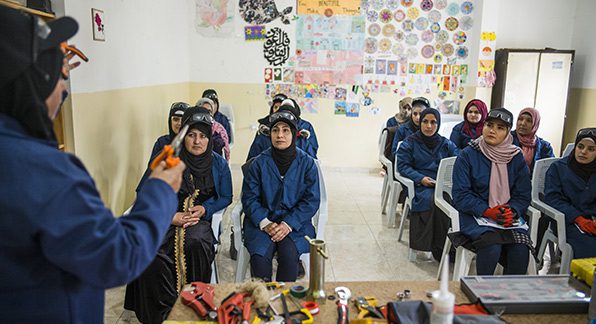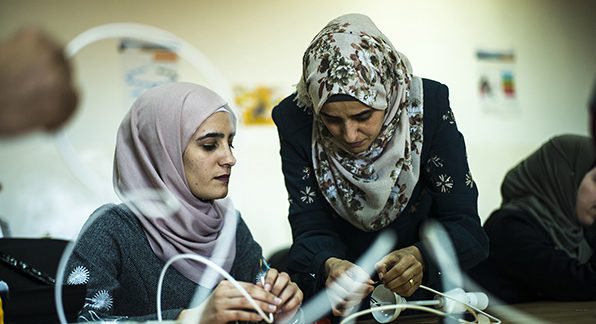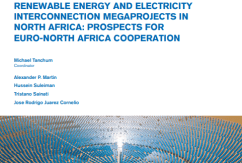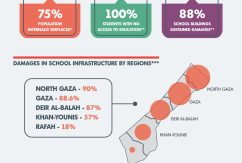Maintenance training gives Syrian and Jordanian women skills for life
Huda and Aziza learned to master electricity and house maintenance skills as part of a capacity building programme targeted at Syrian and Jordanian women. They are now using their new knowledge to be proud contributors to their families’ income, while having regained a sense of purpose.

One is a Syrian mother of two living in Deir Alla, in northern Jordan; the other is a 26-year-old Jordanian, freshly graduated from a bachelor’s degree in chemistry, in southern Jordan. While nothing seems to unite them, Huda and Aziza both went through similar life-changing experiences two years ago, as they participated in an EU-funded capacity building programme.
What we learn, we can teach: women empowering one another
“When I moved to Jordan almost a decade ago, I expected things to be very harsh, bracing myself for much difficulty,” remembers Huda, who fled from Damascus, Syria with her husband and two children when the war started.
Far from it, Huda recalls being met with open arms. “People welcomed us and accepted us, we felt safe among them.” More than that, she says she found a new purpose, and allowed herself to dream about a brighter future.
With her husband working in agriculture and her children attending school, Huda decided to enroll in a home maintenance training course, which was offered to Syrian refugee women in her area.
Whilst she never thought about working in plumbing and electricity-related work before, Huda believes things are changing. “The perception about women being capable of working is going to change. If one woman goes out [of the house] to work, she will encourage the rest, and because now we have a good number of women working, things will evolve,” Huda asserts.
Like Huda, more than 3,000 Syrian and Jordanian women have participated in employability and vocational skills training in Jordan, as part of a partnership between the European Union and the Euromed Feminist Initiative. The partnership aims to improve livelihood opportunities for Syrian refugee women and local communities’ women in Jordan, Lebanon and Iraq, and contribute to eliminate the practical, social, cultural and legal barriers to their employment.
It is this independence and freedom to choose that the Syrian mother was after when she enrolled in the 60-day course. “It meant that I could leave the house to do something worthwhile because I benefit from it and it also helps other people.”
She says that the training taught her and her peers essential working skills, which will serve them all in any future job or company. “We learned how to work as a team, to cooperate and respect each other.” And, with this newfound expertise, Huda believes that, one step at a time, they will be able to expand and “have a real project where we could also train other women and teach them.”
“What we learn we can teach,” she concludes with enthusiasm.
(Re)discovering one’s worth through work
Like Huda, 26-year-old Aziza found a new sense of self worth when she enrolled in an EU-funded maintenance training offered by the Oasis Centre of Karak, in southern Jordan.
“I had been looking for a job for more than two years after my graduation. But like a lot of people from my field -chemistry- I couldn’t find anything.”
Out of boredom, she started applying to a number of training with a friend “just for fun and to pass time”. Until the day when a programme really caught her eye: a three-month cash-for-work training in electricity and maintenance, delivered by an engineer.
“It did not just benefit me financially. It changed me,” Aziza recalls, stressing “I feel more confident and more self-reliant.”
In the course, she learned the value of her own work and that she could commit to the constraints of a real work schedule. “It was my first job. A proper job with a salary and a schedule,” she says, beaming with pride.
For Aziza, the job was an eye opener on her worth as a worker. “I worked hard for four years to get my degree and so I would like to work in that [field]… I really want to have my own career in my field of studies and to be in a permanent position.”
Led by the Jordanian Ministry of Social Development, UN Women and the European Union, the Oasis Centres help women generate an income by supporting them in entering and remaining in the labour force. It also seeks to increase their participation in household decision-making and strengthen their sense of empowerment.


A desire to give back
Being able to make her own money was also paramount for Aziza, who wanted to prove to herself that she was able to provide for her family and spend her own money. “I can rely on myself now. After graduating and them spending [money for my education] all these years, it was hard for me to go ask them something if I needed it”.
Now, Aziza is proud to be able to “work hard for them.”
Just like Aziza, Huda saw her training as a way to give back to the community that welcomed her so warmly. “I really believe that women can contribute in a positive way and that [such training] benefit both me and other members of the community,” she explains.
She rejoices to be able to go and make repairs in people’s homes where she was hosted with such warmth and kindness.
“I want to provide a service to the people of this town who helped me and stood by me in the beginning.”
The EU Regional Trust Fund in response to the Syrian crisis, also known by the Arabic term “Madad” which translates to ‘sustaining’ or ‘reinforcing’ in English, places the EU at the forefront of the international response to the Syrian crisis: it contributes to address the critical needs of 5.6 million Syrian refugees, their host communities and 6.7 million persons displaced in their own country (internally displaced people, IDPs).
The Fund has mobilised EUR 2.38 billion, including contribution from 21 Member States, Türkiye and the United Kingdom. This allowed for the implementation of 129 projects in the sectors of basic and higher education, livelihoods, health, water and sanitation (WASH), protection and social cohesion.
Established in December 2014, the EUTF Syria – Madad officially ended in December 2021, with projects running until June 2025. The EU response to the Syrian crisis is now set to continue through the transition to the “Neighbourhood, Development and International Cooperation Instrument” (NDICI, also known as “Global Europe”).


































